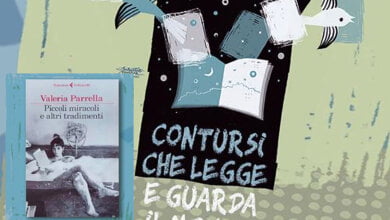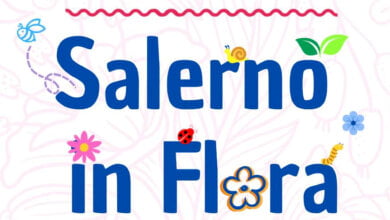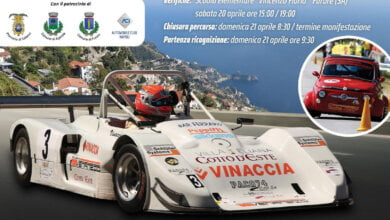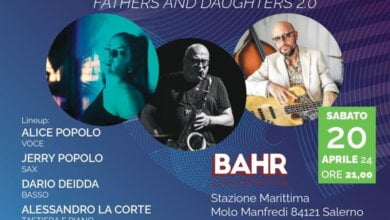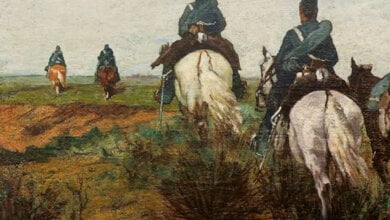
“I was very struck by the enthusiasm with which so many wanted to participate in this impressive campaign on paper and cardboard, promoted by Comieco. We will have a calendar full of events with shows, conferences, training and information moments. Our fellow citizens have always been attentive and sensitive to virtuous and correct separate waste collection, achieving excellent disposal results. As the municipal administration - supported by the precious work carried out by Salerno Clean – we are implementing all possible strategies and adequate controls to make the community increasingly aware of the correct disposal of waste. Initiatives like this represent a further opportunity to encourage the separate collection of paper and cardboard and more." says Vincenzo Napoli, First Citizen of Salerno, regarding Paper Week
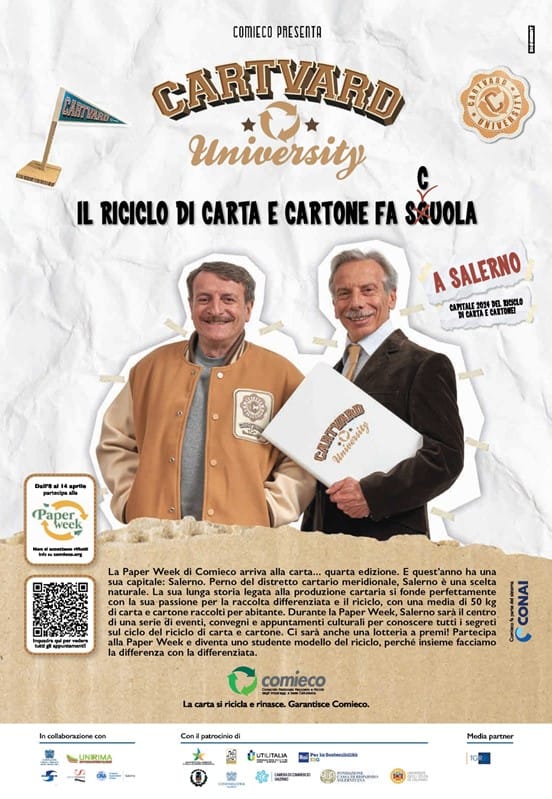
Comieco is the national consortium for the recovery and recycling of cellulose-based packaging, and brings together paper mills, producers, transformers and importers of paper and cardboard for packaging.
It was established in 1985 as a private entity by the will of a group of companies in the paper sector interested in promoting the concept of "ecological packaging". And since 1997 it has become a national consortium for the recycling of this type of material, in compliance with Legislative Decree. legislative decree 22/97, subsequently legislative decree 152/06. It is part of the Conai system.
Comieco Consortium members are producers, importers and transformers of cellulosic material and packaging, recoverers can also join. The Consortium stipulates agreements with local administrations for separate waste collection, and through these entities voluntarily manages, in agreement with CONAI, the system of collection and recycling of paper and cardboard waste coming from municipal collection.
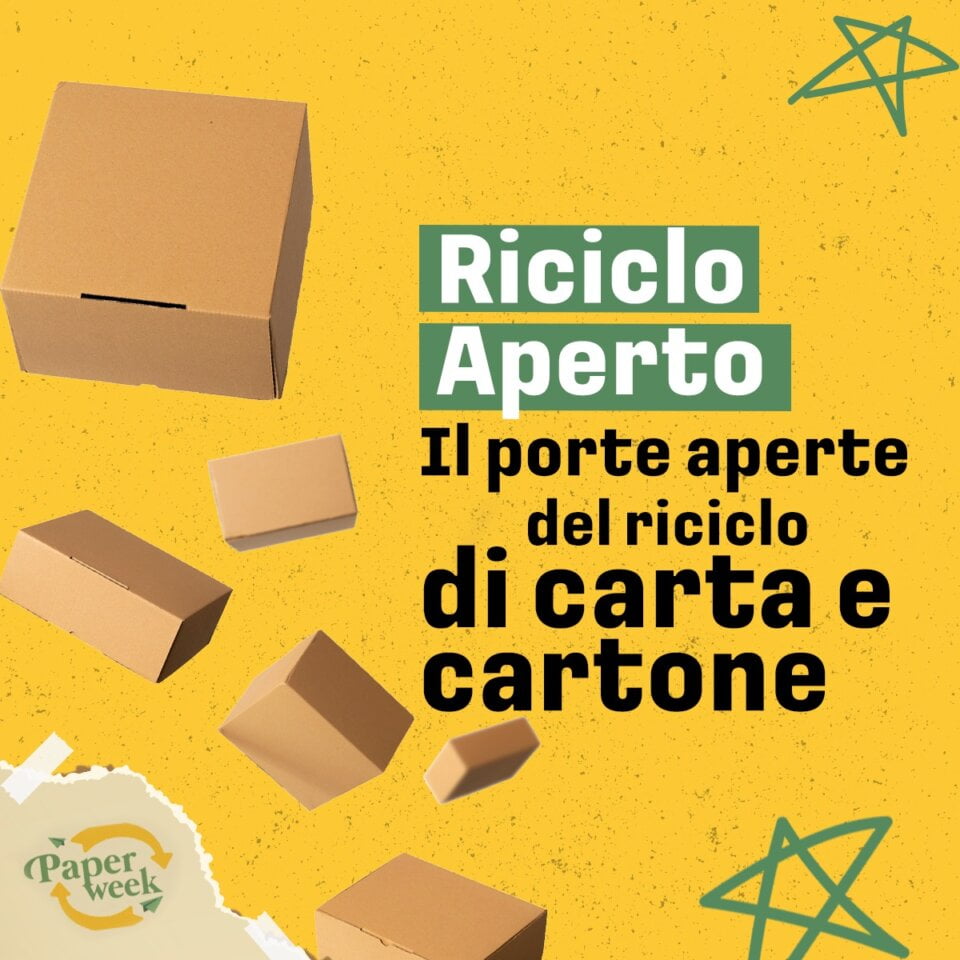
To date, Comieco, as a consortium, brings together approximately 3.330 companies including paper mills, processors of cellulosic material and packaging and recovery plants.
Comieco is also committed to activities ranging from prevention, through the support of studies aimed at the creation of sustainable packaging, to the promotion of separate waste collection through communication activities and other initiatives which aim to raise public awareness on respect of the environment and the importance of correct separate waste collection.
CONAI has the task of managing and organizing the flows of the seven packaging materials (steel, aluminium, paper, wood, plastic, bioplastic and glass) guaranteeing their collection, recycling, recovery results, economic flows and obligations that the law imposes on companies that adhere to it.
How are consortia of various materials financed, including Comieco? Thanks to the legislation (Legislative Decree 152/06) which provides that for every ton of packaging placed on the market a contribution is paid - CAC, CONAI Environmental Contribution - to then allow the material to be recovered and recycled.
The application methods and forms useful for compliance are indicated in the "Guide to joining and applying the Environmental Contribution“, a guide that Conai (National Packaging Consortium) publishes annually.
For any requests for information on membership and application of the CONAI Environmental Contribution, the toll-free number 800.33.77.99 is active

THE CONFERENCE
La Paper Week 2024 of Comieco opens with an important opportunity for discussion between national and European institutions and industry on the results and prospects of a sector - that of paper and cardboard recycling - which is confirmed to be in perfect health with a packaging recycling rate steadily above 85% for four years and which in 2023 exceeded 90%.
Italy, thanks to its collection and recycling system, today represents 13% of the overall European collection of paper and cardboard and reuses approximately 12% of waste paper for production and during the conference "The national paper and cardboard recycling industry: the potential of the South for an increasingly circular economy.", held today in Salerno, we discussed how our country, also thanks to business investments and contributions from the PNRR, has all the "cards" in order not only to confirm the important results already achieved but to surpass them.

During the conference, the update of the Nomisma study commissioned by Comieco was presented which analyzes from a multidimensional perspective the economic, employment, environmental and territorial effects and benefits of PNRR investments for the separate waste collection and recycling of paper and cardboard supply chain.
“In the implementation of the 'Lighthouse' circular economy projects financed by the PNRR” - comments Laura D'Aprile, Head of the Sustainable Development Department of MASE – “the intervention relating to the paper and cardboard sector provides for a total contribution of approximately 106 million euros with 58 plants subject to co-financing (of which 39 in the Centre-South). The leverage effect of these investments, especially in the south where new plants will be built, is extraordinary: significant in this sense - continues Laura D'Aprile –the estimate referring to Sicily and Campania compared to the scenario without PNRR with, respectively, 14% and 4% incremental annual rate of employment growth.”
“The potential for separate collection of paper waste could be increased by over 700 thousand tonnes, of which over 400 thousand in the South” adds Francesco Capobianco of Nomisma. “This is mainly thanks to the increased production capacity of the 16 paper mills and 42 paper waste treatment plants that will be the subject of the financing. The PNRR effects will also be felt from an environmental point of view thanks to a decrease in landfill disposal and a better energy efficiency of the plants with a consequent decrease in CO2 consumption per unit of product."
The large regions of Southern Italy have been fundamental for the growth of separate paper and cardboard collection but it is also true that overall the gap between North and South is still quite significant: of the approximately 3,6 million tonnes of paper and cardboard they collect on average in Italy in recent years, the North covers 51% while the South reaches 26%.
“The attention to the growth of collection in the South for Comieco is constant and targeted: since 1998, through agreements, over 11 million tons of paper and cardboard have been managed and economic compensations of over 670 million euros have been transferred to the municipalities” – comments Alberto Marchi, President Comieco – “To improve the quantity and quality of the collection, Comieco has allocated a further 3,5 million euros aimed at the purchase of collection equipment and vehicles, the start of experimental collection projects and communication interventions”.
“Environmental sensitivity does not feed itself, it must be supported with awareness and information initiatives starting from schools – comments Vincenzo De Luca, President of the Campania Region. “In this sense, the collaboration with Comieco and the entire paper recycling chain is important which - even in the Campania region - represents an important model that combines civil and industrial commitment. Moreover, the theme of the ecological transition and the circular economy cannot ignore a close correlation between attention to social, employment and competitiveness issues".
Speakers at the conference were: Massimiliano Natella (Councillor for Environmental Policies of the Municipality of Salerno), Alberto Marchi (President of Comieco), Laura D'Aprile (Head of the MASE Sustainable Development Department), Francesco Capobianco (Nomisma), Andreas Walser (Co-chair 4evergreen), Michele Bianchi (President of the Paper and Graphics Federation), Filippo Brandolini (President of Utilitalia), Fabio Costarella (Deputy general director of CONAI), Antonello Antonicelli (Anci), Luciano Di Mario (Prof. University of Salerno), Pio Savoriti (Delegate of international relations at Unirima ), Mattia Pellegrini (DG ENV European Commission), Massimiliano Salini (Shadow Rapporteur PPWR and member of the ENVI European Parliament commission), Patrizia Toia (ITRE Opinion Rapporteur PWWR and Vice President of the ITRE European Parliament Commission) and Vincenzo De Luca (President of the Campania Region).
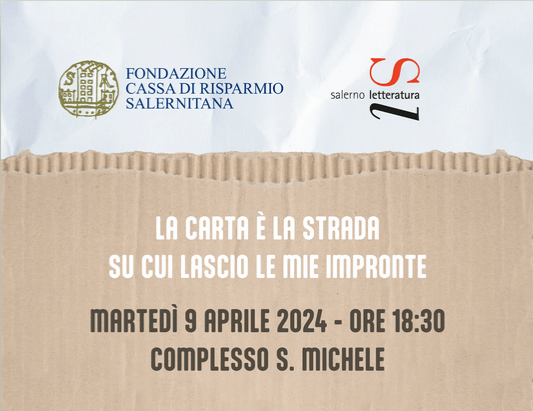
The event of 9/4/24: Paper is the road on which I leave my footprints
On the occasion of the fourth edition of Paper Week, Salerno, the 2024 capital of paper and cardboard recycling, hosts a mini series of cultural talks dedicated to the relationship between paper, literature and art.
Paper is the surface on which words are placed, it is the material that gives substance to thought, it is the means through which the testimonies of those who preceded us throughout history have reached us, and even in this digital age we continue to preserve on paper what matters most to us.
The scent of paper to a reader is as good as that of freshly baked bread.
On the sheet of paper the writer orders the disorder through words, becomes the characters he is not, creates new worlds. In the first of 3 meetings Diego DeSilva, interviewed by Paolo Romano, he tells us about when and how his relationship with paper, with books, with writing and reading was born.
Free admission subject to availability.
This event's audience is organized by the Carisal Foundation – Salerno Letteratura – Comieco
Biography
Diego DeSilva – Writer and journalist, he is the author of novels translated into various languages, short stories and film and television screenplays. The film of the same name directed by the Frazzi brothers, winner of two David di Donatello, was based on Certi bambini (Einaudi, 2001). The successful TV series “Vincenzo Malinconico, lawyer of failure" broadcast by Rai 2007, whose screenplay includes De Silva himself among the authors.
Paolo Romano – journalist, literature teacher and writer, lives and works in Salerno. Historical editor of the television broadcaster TDS, he has made documentaries in India, Tunisia, Germany, Israel, Egypt and Jordan. He has collaborated with newspapers including "Il Mattino", "La Città", "Il Quotidiano del Sud". He has published several books, among the latest we mention: The history of Salerno. From prehistory to the present day (Typimedia Editore, 2019), History of the Coronavirus in Salerno and Campania (Typimedia editore, 2020) The paper house. Literary guide of Salerno and its province (Marlin, 2021) and Io, la Campania. Autobiography of a wonderful region (Marlin, 2022).




